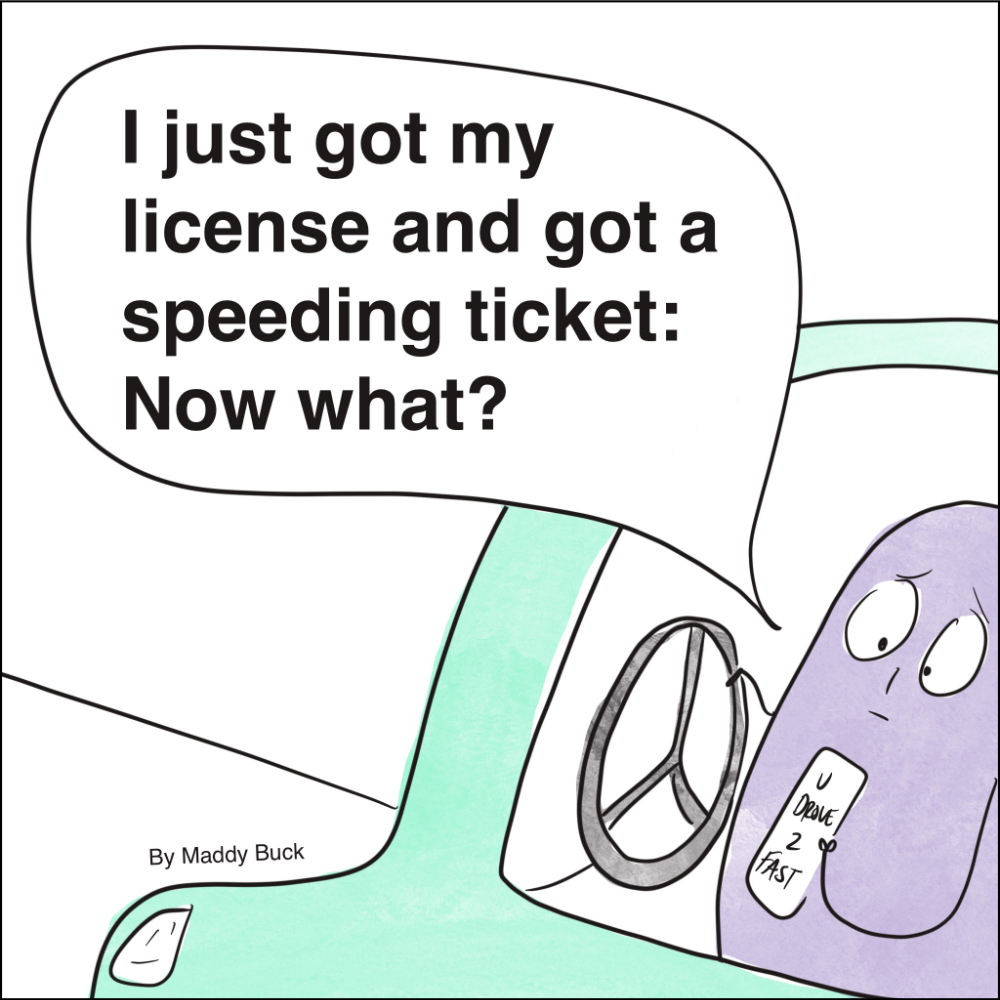
So you just got your driver’s license, and you received a speeding ticket. This is what you’ve been waiting for, but you just had to go faster than that lame speed limit. You’re probably freaking out about how mad your parents are going to be and wondering if your insurance rates will go up. Or worse, you’re scared that this traffic citation will result in you getting a license suspension.
Bet you’re missing the old days when speeding meant going fast enough to win a game of “Red Light, Green Light.” But don’t start searching for a defense lawyer just yet. Speeding is one of the most common moving violations, so it’s unlikely a police officer is coming to lock you away forever.
The consequences for young drivers usually depend on their state’s traffic laws, driving record, and the specific circumstances of the ticket. So what are the traffic laws and punishments when it comes to teen drivers and their traffic violations?
Motor Vehicle Laws
Most states have graduated driver licensing systems that use different levels or classes of driver’s licenses to help new and teenage drivers develop skills and get experience over time. You advance gradually by first obtaining your learner’s permit, next a temporary license with restrictions, then your full driver’s license with all the driving privileges.
To experience this story in comic form, click here or on the image below:

Most states also use some kind of point system to keep track of licensed drivers’ records. Less serious violations are assigned fewer points, and serious violations receive more points. Each state assigns points differently. For example, some states might treat failing to stop at a stop sign or not wearing a seat belt as a minor offense worth two points. Other states may see failing to stop for a school bus or reckless driving as a serious offense worth four points.
Also, each state has its own driving laws. But typically if you receive a speeding ticket, your ticket will come with a court date. You can usually plead guilty, not guilty, or no contest. If you plead not guilty or no contest, you will have to appear before a judge in court to present your argument against the ticket.
If you decide to pay the ticket, that will be the same as pleading guilty, and you will not have to go to court. You can refer to your ticket to find the traffic court’s phone number. In most states you can plead guilty and/or pay your fine over the phone or online with the court’s website.
Requirements and Penalties for Teen Drivers
If you’re under 18 years old, your driver’s license is probably subject to certain restrictions. For example, your state might limit the number of people allowed in the car when you’re driving or prohibit you from driving after a certain time each day. And when you receive that first ticket, it’s possible will have to do more than an adult to keep your license in good standing.
Requirements and penalties generally depend on the state where you received the ticket, the specific violation, your personal situation, and your driving history. In some cases, you might have to attend a safe driving course or traffic school. Sometimes you may even need to participate in community service for license reinstatement.
It’s important to know the laws in your state. Check with your state’s department of motor vehicles (DMV) to learn more about driver’s license requirements where you live.
Serious traffic offenses, like driving under the influence (DUI) or driving extremely recklessly, can sometimes be misdemeanor or felony offenses. If you received a ticket or were even arrested and think you need legal advice, there are attorneys out there focusing on traffic tickets who understand how these cases work and can help you think through your options.
It’s important to note, however, that as soon as you pay your ticket, you will no longer be able to challenge it. Talk to a traffic ticket attorney before you pay a ticket.





More Stories
Get an Attorney to Represent You For a DUI, DWI, Avoid a Lifetime of Punishment
The Barbados Offshore Company
What Defines a Breach of Contract – Contracts 101